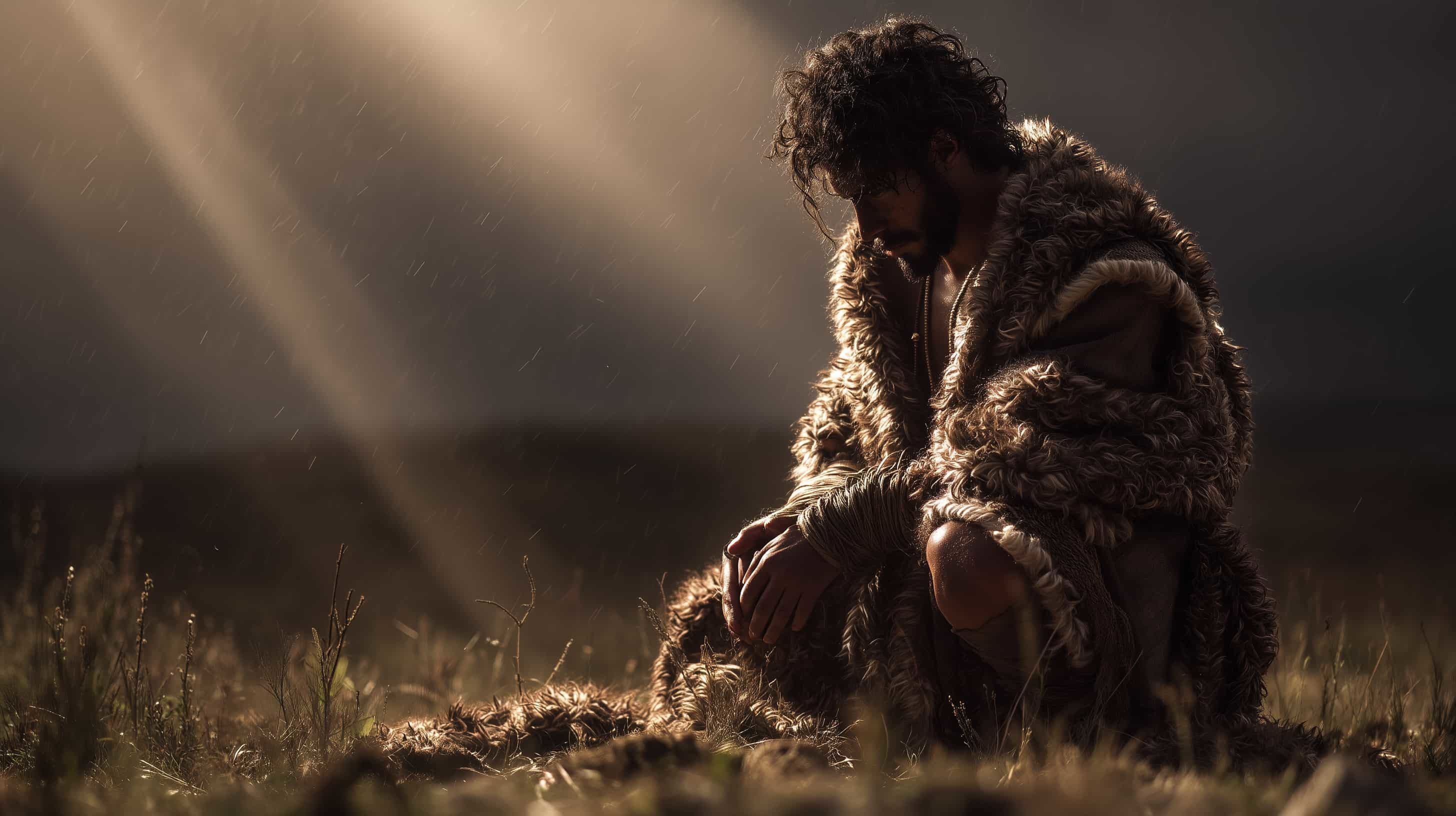Cain’s hands were stained with his brother’s blood, but his heart was raging at God…
The sun is setting low, casting long shadows over the field.
Abel, the youngest son of Adam and Eve, kneels, unaware, tending the flock he so carefully raised.
Behind him, Cain approaches. His steps are quiet, but inside his heart rages like a storm. His fists clench. His teeth grind. His eyes burn with hatred.
And then it happens. Cain rises up against his brother and strikes him down. Abel’s blood cries out from the ground.
But make no mistake, friends…
Cain’s true target was not Abel. No… Cain wanted to wound God.

On the surface, Cain’s story seems simple: jealousy.
Abel’s offering was accepted, Cain’s was not, and Cain couldn’t handle it. That’s a nice message for Sunday school, right?
But beneath the surface is something darker, more universal.
Cain’s hatred was never really about Abel. It was about God. Abel was simply the closest target.
This story has echoed throughout Scripture:
Joseph’s brothers hated him because God had given him favor.
Saul hunted David not because of David’s crimes, but because God’s Spirit rested on him.
The Pharisees crucified Jesus not because He sinned, but because He revealed God’s truth.
In each case, the innocent bore the fury meant for God.

This same spirit still walks among us.
We see it in tragedies that scar our headlines: school shootings, acts of terrorism, eruptions of violence.
We saw it this Wednesday with the tragic murder of Charlie Kirk.
Many who commit such atrocities are not simply lashing out at people; they are raging against life itself… against existence… against God.
But since they cannot strike at heaven, they turn their anger on those who bear His image. The innocent become substitutes for the God they hate. Just like Abel.
What’s chilling is that Cain had a chance. Before he struck his brother, God Himself spoke to him:
“Why are you angry? Why is your face downcast? If you do what is right, will you not be accepted? But if you do not do what is right, sin is crouching at your door; it desires to have you, but you must rule over it.” (Genesis 4:6–7)
It’s as if God were pleading: “Cain, you don’t have to go down this path. You can master the bitterness rising in you.”
But Cain refused. He let anger consume him until it became murder.
YOUTUBE HAS TAKEN DOWN OUR ACCOUNT:
This is the reality you have to accept when doing faith-based media, and we expect to be back and running after our appeal. For now, you can support us by watching our content on the PRAY.COM app.

The story of Cain is a warning to every heart.
In a nation so torn asunder by bitterness and hatred, we must take Cain’s story seriously.
Anger at God often disguises itself as anger at others. We lash out at those close to us… But, in truth, our bitterness is with God.
Bitterness left unchecked becomes destruction.
Cain let resentment grow until it demanded blood.
But God gives us a choice. Just as He told Cain, He tells us: you can overcome it. Sin crouches at your door… but you don’t have to let it in.
After killing Abel, Cain was cursed to wander. He went east of Eden and built a city. From there, his descendants carried on his spirit of corruption:
Cain’s line is marked by advancements in tools, music, and culture, but also by arrogance, pride, and bloodshed.
The pattern is clear: sin doesn’t stay contained. What began as anger in Cain’s heart spread like wildfire into his descendants, birthing generations of corruption.
That is the corrosive nature of sin. It begins quietly, in the secret chambers of the heart, but if left unchecked, it multiplies, like a virus, infecting families, communities, and nations.
And so it is with us. The sin we tolerate in our own hearts today may very well shape the world tomorrow. Which is why God’s warning to Cain still echoes in our ears: “You must master it.”





